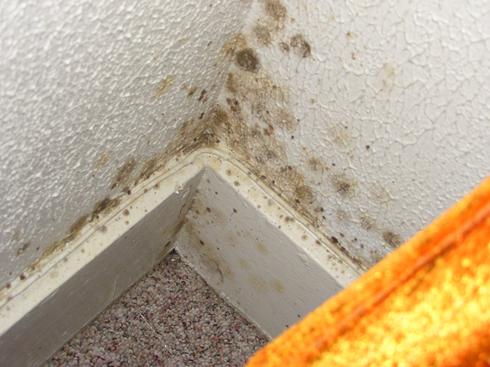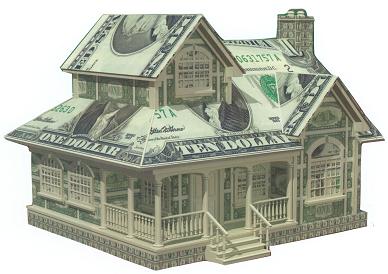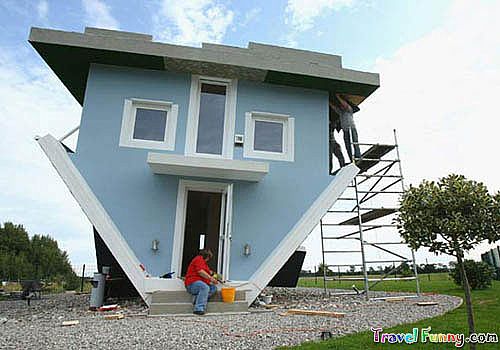
BLOG
2022 Housing Predictions
2021 was, to say the least, an interesting year in real estate. But as the year comes to a close, the big question on everyone’s mind is what does 2022 have in store?
2021 was, to say the least, an interesting year in real estate. But as the year comes to a close, the big question on everyone’s mind is what does 2022 have in store?
A recent article from realtor.com outlined some of their economists’ predictions for the 2022 housing market, including:
Home prices will stay high—but price growth will slow down. Home prices rose high and fast in 2021, with realtor.com economists predicting a 12 percent rise for 2021. And while the realtor.com team predicts that home prices will stay high, they also see that growth slowing down—with price growth projected at a much slower rate of 2.9 percent for 2022.
Inventory challenges will continue. Low inventory proved a huge challenge for buyers in 2021; fewer homes on the market meant higher competition and higher prices—and it looks like it’s going to stay that way in 2022. The economists at realtor.com only expect the number of homes available to increase by 0.3 percent in the coming year.
Mortgage rates will rise. Mortgage rates have been hovering near all-time lows throughout the year, creating even more demand for housing. But buyers hoping to score the lowest possible rate on their mortgage should act fast; the economists at realtor.com predict mortgage rates to hit 3.6 percent by the end of 2022—a significant increase from 2021’s low of 2.65 percent.
Download your FREE Insider Home Selling Tips Book! Get top dollar for your home!
Header Photo by Isabela Kronemberger on Unsplash
Homebuying Myth
Buying a home can seem like a huge undertaking. You don’t need to be a first time home buyer to find the process overwhelming. There is so much information available, how can you tell what’s true and what’s a myth? Understanding the difference can help you make the best decision for you and your family goals. Top Home Buying Myths – And the Truth The First Step is finding the Right House – Before you head out shopping, speak with a lender to understand your financial options and how much house you can afford. You Can’t Buy a Home Without Perfect Credit – The truth is there are many loans available which still offer good interest rates for those without that perfect score.
You Need 20% Down Payment – First time home buyers can use FHA financing for as low as 3.5% down. There are other programs too, such as VA and some conventional loans with less than 20% down also.
You Don’t Need an Agent – An agent not only knows the market and can help you with value, but also customary charges, negotiations and solutions to common hiccups.
Schools Don’t Matter if you don’t have Kids – The neighborhood is always important to home values, regardless of whether you yourself have children.
New Homes Don’t Need a Home Inspection – Every home should have a home inspection by a licensed inspector to check for existing or potential problems. Buying a home is one of the most important financial decisions you’re likely to make in your lifetime. Take the time you need to understand the process and learn from the professionals; don’t assume that everything you read is true.
Get started on your home search today!
www.LauraKey.net
FIVE THINGS TO KNOW ABOUT HOME INSPECTIONS
Inspections are a critical part of purchasing a home. Find out some of the things Inspectors are responsible for and what they are not responsible for.
Home inspection is an important part of the home sale process, both for buyers and sellers. When it’s time for you to hire an inspector, here are five things you should be thinking about:
1. It’s your choice: You are not bound or obligated to use any particular inspector. Your real estate professional may have some recommendations, but it’s ultimately up to you. Ask around and choose wisely—better to pay a little more now for a highly-respected inspector than to be surprised by a problem that the inspection didn’t reveal.
2. Looking for big problems: The inspector will be focused on the integrity of the home—safety, electrical work, foundation, load-bearing walls, etc. The inspector is not there to point out problems with ugly paint colors or light fixtures.
3. The report: There are hundreds of items to inspect in a home, so the inspector’s report will focus on the basics: What’s damaged, what needs repaired, etc. The report should be easy to read and understand.
4. Code of ethics: Though the inspector is working for the party that pays the inspector’s fee, the inspector will not deliver a report that intentionally hides or omits damaging information about the home. The report is private between you and the inspector, but if you’re the seller, you’re required to disclose any problems that the inspection reveals.
5. The inspector is not liable: Even the best inspectors can’t find every single problem in a home. They can’t see inside the walls or through the floors, so there could still be problems lurking. If a problem is revealed down the road, the inspector can’t be held responsible.
Let's begin your process, schedule a free consult with me today.
Schedule your consult here:
https://calendly.com/realtygoddess/30-min-homebuyer-consult
Types of Real Estate Sales - Coffee Time with the Realty Goddess
https://youtu.be/swxL643JKYw
When you are purchasing a home you will come across many different "types" of sales. Short-Sales, Stand, HUD, Trust, REO...it can be confusing. This broadcast will look into the terms and untangle the mystery.
If you are in the Los Angeles area, I would love the opportunity to earn your business.
Laura Key, REALTOR Cal BRE 01908085 Laura.A.Key@gmail.com www.KeyCaliforniaHomes.com
Follow me on: Periscope & Twitter: @RealtyGoddess Snapchat: @RealtyGoddess Instagram: @realtygoddess1 Facebook: www.Facebook.com/RealtyGoddess
FHA Limits for Los Angeles Area
Homeownership is not out of reach. FHA limits in California are one of the highest in the country. I have great lenders that can help you reach your real estate goals! Call me to get started on your homeownership goals!!! Laura Key 310.866.8422
Here are the current limits for Los Angeles (as of August 23, 2013) FHA allows 3.5% downpayment over a 15 to 30 year term!
Single Family $729,750
Duplex $934,200
Tri-Plex $1,129,250
Four-Plex $1,403,400
Source: FHA.com
Budget for Closing Costs – Home Inspection and Title Fees
Buying a home means you also have to budget for additional expenses! Make sure you put some money aside for the extras.
Purchasing a home is a euphoric event. Once escrow begins, the euphoria can change to frustration, particularly if you are not ready for the closing costs that quickly accumulate.
Closing costs simply refer to the fees associated with various things associated with the escrow process in a real estate transaction. In the excitement of having an offer accepted for your dream home, you can easily lose track of the fact you are going to need to have some serious cash on hand to pay them. Many people make the mistake of only assuming they need the down payment money, and have to rush around town trying to come up with money for the closing fees.
If you are buying a home, you need to get a professional home inspection. Doing so can reveal potential problems with the home that you wouldn’t otherwise notice. Problems can include things such as rot, termites, water leaks and a bevy of other issues. The time to do this is during escrow. Of course, that means you are also going to have to pay for the inspection. Depending on the size of the property, home inspections can run a few hundred dollars up to a few thousand. Make sure you have money set aside for the fees.
Title insurance is something you absolutely must purchase when you buy any real property, a home, building, land or whatever. Title insurance protects both you and your lender. Title insurance is just what it sounds like. A title company will research the title of the home and essentially guarantee that the title is good. This means the seller actually owns the title and has the right to sell it to you. The title company will also make sure there aren’t any liens on the homes or other things that will cause you problems. Depending on the price of the home, title insurance can run you a couple of hundred dollars or up into the thousands. Again, it is important to find out the cost and budget for it.
Title insurance and a home inspection are two things you should absolutely have when purchasing a home. Just make sure you budget for them.
Laura Key, BRE 01908085 310.866.8422 Laura.A.Key@gmail.com www.KeyCaliforniaHomes.comA Bit About Mold
There are a number of little things to look out for when purchasing a new home. Normally the things to consider includes such things as location, wiring, the condition of the house itself, and several other factors. One of these factors that the home buying public is becoming more concerned with is mold.
 There are a number of little things to look out for when purchasing a new home. Normally the things to consider includes such things as location, wiring, the condition of the house itself, and several other factors. One of these factors that the home buying public is becoming more concerned with is mold. There are many different types of mold that can occur in a home and lead not only to structural damage, but some health concerns as well. Mold is difficult to find in many homes as it grows exclusively in dark and moist areas that are usually hidden somewhere in the structural areas of the home such as attics and basements. By the time mold shows up in the actual living areas, chances are that it is all through the home.
There are a number of little things to look out for when purchasing a new home. Normally the things to consider includes such things as location, wiring, the condition of the house itself, and several other factors. One of these factors that the home buying public is becoming more concerned with is mold. There are many different types of mold that can occur in a home and lead not only to structural damage, but some health concerns as well. Mold is difficult to find in many homes as it grows exclusively in dark and moist areas that are usually hidden somewhere in the structural areas of the home such as attics and basements. By the time mold shows up in the actual living areas, chances are that it is all through the home.
One of the most likely places for mold to form is anywhere that moisture is improperly vented. Another area of concern is if a home has ever flooded and was not completely or properly cleaned and dried after. Leaky plumbing and basement crawlspaces are other likely candidates. Mold can be a difficult thing to completely get rid of as the only thing it needs to continue growth is an organic material such as wood, and moisture. Both of these items are usually abundant in any home. The most likely was that moisture finds its way into the home is through faulty or leaky roofs and foundations. Both of these areas should be checked over by an experienced mold inspector on a fairly regular basis if there is any worry of mold beginning to grow, or if these has been mold in the past. Mold can be an expensive problem to deal with so be pro-active about looking for it, it can save you money in the long run.
Search for Homes Free! Click below!
Bank Faces Lawsuit Over Excessive Fees
Are you facing or someone you know facing foreclosure? There are sources out there to help you! Call me for a list of free resources! Laura Key 310.866.8422
JPMorgan Chase faces a lawsuit that alleges the bank imposed overly high or unnecessary fees on delinquent borrowers. The banking giant tried to get the case dismissed, arguing to the courts that the claims were unjust, but a federal judge ruled the lawsuit should proceed.
Borrowers are accusing the bank of “imposing excessive or unnecessary fees to inflate profit, including on services performed by third party vendors, cheating thousands of already-strained borrowers out of millions of dollars,” Reuters reports.
Among the fees in question range from $95 to $125 for “broker’s price opinions.” The plaintiffs, who reside in Tennessee, California, and Oregon, claim that the BPOs cost $30 to produce and that according to Fannie Mae guidelines they should not cost more than $80.
Similar lawsuits over mortgage fees charged to delinquent borrowers are pending against Wells Fargo and Citigroup.
Source: “JPMorgan must face lawsuit challenging mortgage fees,” Reuters (June 14, 2013)
Where Asking Prices Are Rising the Most
California is rising fast, yet it's not at the highest it's ever been. Interested in buying or selling! Let me assist you in reaching your real estate goals! Laura Key 310.866.8422
Median list prices in May edged up 2.10 percent month-over-month, as housing inventories also were on the rise, creating a greater balance between supply and demand, according to realtor.com’s latest Real Estate Health Report.
The nationwide median list price was $199,000 for May, and up 4.79 percent year-over-year.
"We are seeing large regional markets across the country leading the way to national recovery. These regions are acting as a microcosm for what's slowly happening in the larger real estate market," says Steve Berkowitz, chief executive officer of Move. "Overall, we're seeing seller confidence beginning to respond to consumer demand. Nationally, there are more homes going on the market for a shorter amount of time. And this is happening in our hot markets on a much larger scale."
California housing markets are seeing some of the highest median price gains. The following 10 markets have seen the highest year-over-year list price gains:
1. Sacramento, Calif.: up 42.45%
- Median list price: $284,900
2. Oakland, Calif.: up 38.27%
- Median list price: $495,000
3. Detroit, Mich.: up 31.73%
- Median list price: $125,000
4. San Jose, Calif.: up 30.58%
- Median list price: $679,000
5. Los Angeles-Long Beach, Calif.: up 27.80%
- Median list price: $428,000
6. Fresno, Calif.: up 27.48%
- Median list price: $219,900
7. Phoenix-Mesa, Ariz.: up 27.03%
- Median list price: $235,000
8. Stockton-Lodi, Calif.: up 25.63%
- Median list price: $199,750
9. Reno, Nev.: up 24.23%
- Median list price: $235,900
10. Santa Barbara-Santa Maria-Lompoc, Calif.: up 24%
- Median list price: $775,000
Source: realtor.com®
Search for your next home for FREE! Click below!
Laura Key
Realty Goddess
Laura Key on CBS News
Do you work from home? Buy your next home with your office in mind!
If you work from home, and it is time to move to your next home, there are some factors you should consider carefully before making your decision.
The flexibility afforded by a “zero-commute” combined with the skyrocketing price of gasoline has strengthened the case for full time teleworking and telecommuting. According to an Environmental Protection Agency (2004) study:
“Americans spend an average of 46 hours per year stuck in traffic. Gridlock produces more than $63 billion in congestion costs per year”
The artist community has been well acquainted with the use of work/living spaces for years, but improvements in technology have made the benefits of teleworking and occasional telecommuting more attractive to general consumers. According to the key findings form the International Telework Association & Council (ITAC) Telework America (2000) study:
“Home-based teleworkers also have larger homes, on average, than non-teleworkers; the difference amounting to about 500 square feet. The most popular place for an office in these larger homes is a spare bedroom, with the living room a distant second. The primary home telework activity is computer work (55% of total activities), followed by telephoning, reading, and—averaging 7% of the time—face to face meetings.”
As you purchase your next home, there are certain factors to consider if you need to set up a new home office:
Make sure that your high-tech needs can be met. Have a qualified electrician inspect the wiring of the house to see if the system can handle the extra power load that your home office requires. Older homes may need significant upgrades to handle the extra power, while newer homes are built with more energy-efficient systems to handle the additional power along with heating/air conditioning requirements. If you use cable, DSL or satellite internet access, check with your local service provider to see if access is available in your new neighborhood. Shop around for your telephone provider—in some cases, business service bundles may be more cost effective than regular residential service.
Designate where your office space will be. Determine the amount of space you will need to accommodate your work style and space. In many cases a spare bedroom or living room space can be used, if a formal den option is not available. If your work requires heavy telephone usage or just heads-down concentration, you may want to consider utilizing a room with a door. Doors can be closed to reduce interruptions from other family and household noises.
Plan your office blueprint to include all required furniture, bookcases, computers, fax, and printers. Make sure to allow for filing and storage space for files and extra office supplies. Lighting is critical for computer or assembly work, so make sure to allow for direct sunlight along with any specific task lighting that may be necessary. Select flooring options that will allow you to work comfortably—you may wish to go with hardwood or laminate flooring to allow for your chair to move smoothly across the floor. Install enough phone lines to cover your home, business and fax machines needs.
Is the office easily accessible? If you will expect regular package deliveries, make sure that your designated office is easily accessible to the front door of the home. This is also necessary if you will need to meet clients or visitors in your office and would like to ensure a professional appearance for your business.
Find out about local business requirements. Some cities have zoning restrictions and guidelines for work/living spaces along with tax implications. Make sure to check with your local government to determine if special restrictions exist.
Are you ready to find a home that could allow you to work from home? Or...do you need more room in the current home you own? Give me a call - lets get you started!
Rare Opportunity to Buy by the Beach!
What a wonderful opportunity to live your dream of living by the beach! Redondo Beach to be exact! Call me for a scheduled showing! Laura Key 310.866.8422
630 The Village Unit 110 Redondo Beach, CA
$385,000
1 Bed 1 Bath 621 SqFt - HUD
Click Photo for Virtual Tour!!!
Call me today! Laura Key 310.866.8422!
Experienced HUD Selling Agent!
Laura Key on CBS News
Appraised Value: The Ups & Downs Of How Much A House Is Worth
How is the fair market value of a real estate property actually determined?
Determining Fair Market Value is an eternal struggle and major balancing act. That’s because buyers want a house to appraise on the low side—to keep the purchase price down. While sellers want the same house to appraise on the high side—to make the sale price higher. And then you’ve got the owners of the house—who also want the appraisal to be on the low side, in order to keep the property taxes down.
So with all these different agendas and points of view, how is the fair market value of a real estate property actually determined?
Once a year, your county sends all area homeowners official notices that put a dollar value on their property. And property taxes are based on those dollar values. But before those notices get sent out, a long, detailed process usually takes place. First, the land is valued as if it’s vacant—an empty lot, in other words. Then any improvements are described and measured. Improvements consist of the house and any other structures, pools, sheds, garages, and so forth. Next, most counties check the Marshall Valuation Service Cost Guide. It’s a standardized nationwide guide for determining the value of the cost per square foot to build a building that fits the description of the improved property. Next, if the house isn’t brand new, the replacement cost is considered, as well as depreciation; the year the house was constructed and the condition of the property are factors here. Appraisers then must take the critical step of comparing the value of the house with recent selling prices of similar homes in the neighborhood. At this point, the appraisal might stand “as is”—or it might be adjusted upward or downward.
Market Value is a theory, in other words—not an unchanging fact.
In a perfect world, you have to have willing buyer and a willing seller. Neither is under duress. Both are in a position to maximize gain and are trying to do this. But in the real world, things are rarely that simple and equally balanced. Which is why people feel differently about the appraisal value of a house. It really depends how strong their position is as a buyer or seller.
Does the local economy come into it at all? You bet it does.
Ask a successful Realtor about that! He or she will tell you they’ve noticed that the Rio Grande Valley’s fast-growing economy is attracting people from other areas who consider real estate here a bargain. That helps fuel increases in property values.
So—now you know where that Grand Total comes from.
You’re armed with the information you need to make a better house-buying decision. For instance, you can understand how two virtually identical houses that are in two different neighborhoods could be very far apart in price and appraised value. And why your choice of the right house in the right neighborhood could be worth a not-so-small fortune to you right now—and years down the road.
Sellers! You can get a great idea of how much your home is worth! Call me for a FREE Comparative Market Analysis (CMA) Laura Key 310.866.8422
5 Things You Should Know Before You Flip A Property
Money is made at the buy, not the sell of your flip. When flipping a house your money is made at the purchase not at the sell of the house. So, many times people buy a house with the intentions of making a huge profit only to find out that they could not make any money after all the renovations because the purchased price of the house was to high.
1. Money is made at the buy, not the sell of your flip. When flipping a house your money is made at the purchase not at the sell of the house. So, many times people buy a house with the intentions of making a huge profit only to find out that they could not make any money after all the renovations because the purchased price of the house was to high. When you purchase your property you need to be sure that you buy the house with enough money to make renovations, have carrying cost, and add about 5 $6,000. Now, cost is at $147,000, and that is if everything goes as planned. Profit is under 10,000 dollars. The mistake was made at the purchase at the home, not the sell.
2. Get an inspection on the home - Get a complete inspection done on your property. By, spending a few hundred dollars on this expense you can save thousands in problems that you cannot see. Foundation, Pest, Wood Rot, Etc... By, getting a full inspection you can rest assured that you know every thing that is wrong with the property before its to late. In the contact for the house you need to make sure that you have 7 days to have a inspection preformed, and if the inspection finds problems that are going to cost more money that you are willing to spend you can get out of the contract with no penalties.
3. Don't do the work yourself: - Get a contractor or several sub-contractors and have the work done quickly. You need to have you house flipped ASAP, so that you can get it on the market and get it sold. When I started flipping my brother and me did a house together, and we did all the construction. I had a construction background and figured it would save thousands, but it took us over 4 months to get the work done that a contractor could have had the work done in a month. But, we trying to save money on our flip did all the work on our time off and after work, and it just took to long. On our 2'nd flip we used contractors for almost everything and had the house completely flipped with a new roof, new air conditioning, new hardwood, and much more in only 3 weeks. We did not have to spend all our time working on the property and were able to spend that time looking for the next deal. This is how you get rich in real estate.
4. Place the property 1 to 2 percent below market value: If you are wanting to flip real estate and make money the object is to buy and sell the property as quickly as possible, so that you can move on to the next house. If you purchase a house and try to sell it at top dollar to make and extra couple of thousand dollars on your flip, and end up holding it for 6 months you are loosing money. Get the house on the market at a price that is going to blow the competition away, and you will sell it no matter what the market conditions. On our second house the market for selling house went down do to the housing market as a whole, and the tightening of the loans across America. We were told that you could not sell a property in this market, but we went ahead anyway and flipped our house. After 3 weeks on the market we had 3 people wanting to buy the house. Why, because we offered it at such a great deal that people wanted to jump on it. That is what you have to do especially if the market is slow.
5. Use a real estate agent - Do not try to sell you house on your own. Harness the power of a real estate agent and the power of the MLS system. When you do a FSBO you are depending on people driving by your house and seeing you sign, with a real estate agent you have someone actively marketing you house to get it sold. Once again this will free up more time for you to look for more great deals. If you want to help the process I have found that craigslist and listing you house in google adwords help to, but use these tools with the help of a agent such as Laura Key to make sure I have all my bases covered.
I hope this article has been helpful with the basics needs of flipping a house. If you will study and learn you will make money. But, do your homework before you purchase a house, and make sure that you can pull a profit on your deal. Then, make it happen! I am a Investor Friendly Agent, let's get you some deals! Laura Key 310.866.8422
Laura Key on CBS News
Great Burbank HUD Home! 2 Bed 2 Bath
HUD Homes are a wonderful way to purchase your first home! Most are FHA approved and don't need much work at all. Make sure you use a HUD experienced agent as myself! I have helped many families obtain their Home Dreams with HUD! Call me today for more info! Laura Key 310.866.8422
2359 N. Reese Place
Burbank CA 91504
Do Pets Make A Home Complete?
Some say a house is not a complete home without a pet? What are your thoughts? Meet Chewbacca and Fizgig, my furry babies!
 I grew up in the country in a little country town in Kentucky. When I was coming up we only had outdoor pets. So naturally 11 years ago when my husband and I purchased our first home I started to get the gentle heartstring plugs of wanting a dog. After much discussion and concern due to allergies, we proceeded to head out and get Chewbacca who is a full blood Shih Tzu. Chewbacca is gentle, warm, kind loving, and just a special being and I enjoy having him around. Well, after two years we thought maybe Chewbacca needed a companion. So off we went and ended up with Fizgig who is also from the same parents of Chewbacca but has a totally different view on life. He's stubborn, he barks, he is a little Tasmanian devil. But he is still my furry baby and both of my pets do something every single day that warms my heart and lets me know they love me as much as I love them. It's nothing like coming home to two little warm fuzzy faces who are happy to see you. Chewbacca and Fizgig bring both my husband and I untold joy!
I grew up in the country in a little country town in Kentucky. When I was coming up we only had outdoor pets. So naturally 11 years ago when my husband and I purchased our first home I started to get the gentle heartstring plugs of wanting a dog. After much discussion and concern due to allergies, we proceeded to head out and get Chewbacca who is a full blood Shih Tzu. Chewbacca is gentle, warm, kind loving, and just a special being and I enjoy having him around. Well, after two years we thought maybe Chewbacca needed a companion. So off we went and ended up with Fizgig who is also from the same parents of Chewbacca but has a totally different view on life. He's stubborn, he barks, he is a little Tasmanian devil. But he is still my furry baby and both of my pets do something every single day that warms my heart and lets me know they love me as much as I love them. It's nothing like coming home to two little warm fuzzy faces who are happy to see you. Chewbacca and Fizgig bring both my husband and I untold joy!
In case you are wondering where the names came from, my husband is a movie buff. Of course most know Chewbaccca is from Star Wars but most do not know where the name Fizgig came from. Fizgig has his name from the little dog like creature in "The Dark Crystal" and if you know that movie, then you know exactly how my little monkey acts!
So what are you thoughts? Is a house not a complete home without a pet?
Ready to create memories in your own home? Start your journey by attending a FREE homebuyers workshop. You will find info from credible lender's, the homebuying process taught by me, and lots more such as...what is escrow...Do I have to have an inspection? Contact me today for a class schedule!
Return to 'Buyer's Market' Still Years Away
Even though it's tough for buyers right now, I never say it's IMPOSSIBLE! Buyer who are patient and stay the course can find a home! Call me today! Free Homebuyers classes coming soon! Register Now! Laura Key 310.866.8422
It may be two to three more years before prospective home buyers get a break from escalating property prices and tight supply, according to experts speaking at a National Association of Real Estate Editors conference Wednesday.
That is the time frame for institutional speculators, who currently are dominating the market, to pull out of their investments and still make a profit, explained Bill Rayburn of the mortgage technology firm FNC. The market also will need to see the return of individual home buyers in order to normalize, he said, which will be propelled by employment gains.
Source: "Better Times for Home-Buyers Will Take a Few Years, Experts Say," Los Angeles Times (June 5, 2013)
Search for homes now...It's FREE!
What To Ask When Looking At Potential Homes
Buying a house can be an intimidating and overwhelming experience. Here are some key questions to ask yourself and sellers before plopping down a down payment. Let me help you with my FREE homebuyer's class! Call me today! Laura Key 310.866.8422
Buying a house can be an intimidating and overwhelming experience. Here are some key questions to ask yourself and sellers before plopping down a down payment.
What To Ask When Looking At Potential Homes
Following is a list of general questions you should always ask when considering making a real estate purchase. Keep in mind, however, you are unique.
You have particular dislikes and likes as well as factors in your life that are different than other people. The point I am trying to make is that you shouldn’t stick to just these questions. You are making an important choice, so give some thought to your situation.
1. Don’t rush into things. The first question to ask should be directed at yourself. What type of home do you want? How big should it be? What amenities do you want? Are you planning for a family in the next three to five years and will the home be able to accommodate a new bundle of joy? Make a definitive list and stick to it. If you stray from it, you could end up with a house that doesn’t really fit you and suffer buyer’s remorse.
2. The next question is what area do you want to live in? Pick a few. You may find the prices to be excessive or the selection not so hot, but make sure you exhaust those areas before moving on. Again, you want to avoid buyer’s remorse.
3. Once you start looking at homes, a key question to ask is how long the house has been on the market. The amount of time will give you an idea of how flexible the owner is on price. If the house has been on the market for a month, the owner isn’t going to be very flexible. If it has been on the market for six months, flexibility will definitely exist.
4. Has the house previously been in escrow, but fell out? If so, find out why? Was it a problem with the buyer getting financing or did the buyer find out there was something wrong with the home?
5. What kind of condition is the house in and how old is it? Remember that a seller has typically done everything reasonably possible to spruce up the home. If you can see wear and tear on the house, it may be a red flag. In such a situation, you need to get a home inspection to make sure there aren’t problems in areas you can’t see such as mold, rust and water leaks.
6. If you have children or are planning on it, you must investigate the school district. Are the schools good? Are there gangs or crime in the area?
7. In addition to the home price, you should ask whether there are any additional fees such association fees.
8. What are the property taxes and what will they be when you buy? Many people are shocked to find out how much they have to kick out in property taxes. Don’t get surprised.
9. Zoning and easement issues are often overlooked when buying a home. If you are buying in a neighborhood with many homes, zoning is undoubtedly going to be for residential living. Easements, however, can be nasty surprises. Find out if there are any easements on the property. An easement gives a third party the right to use of part of the property. This can include giving the neighbor the right to do something or a utility company to place structures on your prospective property.
10. Noise is another big issue to consider. If you are serious about the property, make sure to drive buy on weekdays and weekends. If the property shares a wall with another residence, such as a duplex or condo, make sure you view it while the neighbors are home to get an idea of how loud it is.
11. In the euphoria of buying a property, practical issues can be missed. A big one is traffic. Specifically, what is the commute like between the house and your place of work? You don’t want to buy the house only to find out it takes three hours to get to and from work each day.
Obviously, you should be asking many additional questions before making a purchase. These 11 questions, however, will help you get started. Call me to schedule a time to discuss the homebuying process in more detail. Don’t forget to look into fun things to do in the area to make sure it’s where you want to live!I care about my clients and educating them is a priority! Laura Key 310.866.8422 or email me at Laura.A.Key@gmail.com
What is the Difference Between the Note and Deed of Trust
It's important to know the basics of real estate if you are going to own a home! Call me to register for a FREE Homebuyers Course! Laura Key 310.866.8422
A note, usually known as a promissory note, which is a written promise to repay a loan. Whereas, a trust deed is a document used to protect paying back of a loan that is being documented as a lien counter to the borrower's real estate. It is necessary to use a promissory note in order to avoid any breach in future. The various important terms of the loan should be specified in a promissory note including the loan amount, rate of interest (if any), and terms and conditions of repayment. It must be signed by the borrower with date in order to make it a valid document.
A deed of trust is a document that involves three parties generally known as the borrower, lender and a trustee. This document includes all the basic terms of the loan and should be signed by the borrower. It is documented as a lien contrary to the borrower's real estate. It is generally taken as a collateral document that works consecutively with the promissory note. In this document, the real property of the borrower is guaranteed as a lien to the lender. In case, the borrower is not able to pay back the loan amount, the lender may take the borrower's real property by way of the system of foreclosure.
A promissory note is a legal document that laid out all the essential things like how and when the borrower will pay back the money to a lender, the interest rate and the schedule of payment. It contains the undertaking of the borrower to repay the borrowed money within the specified time period. It is the personal obligation of the borrower to repay the money and has no relationship with an y real estate or other property.
Therefore, it can be understood that although, both the Note and Deed of Trust are an agreement for repayment of a loan, the tow are independent elements of a common mortgage loan. A deed offers the lien on the property in order to secure repayment of the loan. And, the note is completely a commitment between the borrower and the lender. The terms of this agreement can be modified at any period of time with the consent of both the parties. The deed of trust appears in the public property records, whereas, the note is completely a private document that never appears in the public records and therefore it is administratively very easy to make any modifications in the note.
*Please note that the information contained herein is for general informational purposes only. If you are currently involved in a real estate transaction, please direct your questions to your real estate professional, title officer or closing officer.
















